
Stories, science and secrets from the world’s brightest thought-leaders. Behavioral Grooves is the podcast that satisfies your curiosity of why we do what we do. Explanations of human behavior that will improve your relationships, your wellbeing, and your organization by helping you find your groove.
Episodes
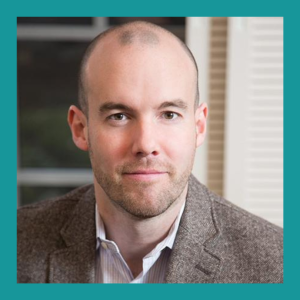
Monday Apr 15, 2024
The Secret Power of Rituals | Michael Norton
Monday Apr 15, 2024
Monday Apr 15, 2024
What separates a ritual from a habit? Join Kurt and Tim this week as they delve into the intriguing world of rituals and habits with special guest Mike Norton, acclaimed author of The Ritual Effect. Together, they explore the nuances that distinguish rituals from mere habits, shedding light on how rituals infuse our daily lives with meaning and significance.
According to Michael, rituals are more than just actions; they're meaningful celebrations or purpose-driven practices that elevate our routines. From something as simple as brushing your teeth to larger group activities, the trio discusses how rituals add depth and emotion to our everyday experiences.
As the episode unfolds, Kurt, Tim, and Mike examine how rituals impact not only individuals but also relationships and work teams. They navigate the delicate balance between rituals that unite and those that divide, emphasizing the importance of consensus in fostering a sense of belonging and satisfaction.
Through personal anecdotes and keen insights, the trio offers listeners a thought-provoking journey into the profound influence of rituals on behavior, perceptions, and relationships. Don't miss out on this enlightening discussion! Tune in to gain a deeper understanding of the rituals that shape our lives. And if you enjoy the episode, be sure to rate and review us on your favorite podcast platform—we'd love to hear your thoughts and continue the conversation.
© 2024 Behavioral Grooves
Topics
[5:33] Intro and speed round
[10:24] Is brushing your teeth a ritual?
[14:00] The benefits and limitations of rituals and habits in daily life
[20:19] Rituals in relationships
[24:00] The meaning behind group rituals
[33:20] Corporate team-building activities
[42:33] The role of music in cultural rituals and traditions
[51:27] Grooving session: Rituals and their meanings in daily life
© 2024 Behavioral Grooves
Links
Michael's TED Talk - Why Rituals Matter
Musical Links
Gillian Welch “I Want to Sing That Rock and Roll”
Arlo Guthrie “Alice’s Restaurant Massacree”
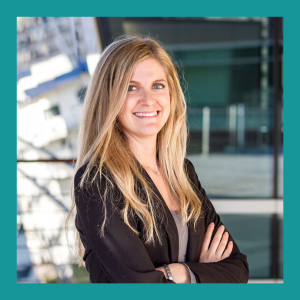
Monday Apr 08, 2024
The Science of Influence: Nudges in Action | Silvia Saccardo
Monday Apr 08, 2024
Monday Apr 08, 2024
Dive deep into the realm of behavioral science with Kurt and Tim this week as they explore the scalability of behavioral nudges and interventions through the groundbreaking research of Silvia Saccardo. Discover how Silvia's work sheds light on the effectiveness of interventions, from COVID-19 vaccination reminders to improving student sleep habits.
Unveil the nuanced impact of nudges and their effectiveness for motivated individuals, as Silvia shares insights from her studies and personalized intervention strategies. In their discussion, Kurt and Tim dissect the implications of Silvia's research, emphasizing the importance of precision in deploying nudges for maximum scalability and impact.
Join the conversation to learn how understanding behavioral principles can revolutionize intervention customization, catering to diverse contexts, populations, and behaviors. Gain invaluable insights into shaping habits effectively through cues and rewards, empowering you to encourage desired behaviors in everyday life. Tune in and unlock the secrets of behavioral science with practical applications.
© 2024 Behavioral Grooves
Topics
[6:17] Intro and speed round
[11:18] Scalability and the effectiveness of interventions
[14:19] COVID vaccination reminders: Study
[26:15] Sleep interventions and their impact on academic performance: Study
[34:21] The effectiveness of cue rewarding in sleep interventions
[40:12] The impact of small incentives of sleep habits
[47:19] Desert island music
[51:39] Grooving Session: Nudges, scalability, and interventions in behavioral science
© 2024 Behavioral Grooves
Links
Behavioral Nudges Increase COVID-19 Vaccinations
Improving Educational Performance Through Better Sleep Habits
Musical Links
Måneskin “OFF MY FACE”
Taylor Swift “Cruel Summer”
Ed Sheeran “Thinking Out Loud”
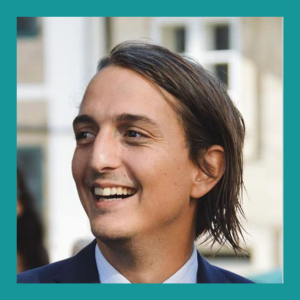
Monday Apr 01, 2024
Unlock Workplace Happiness | Gonzalo Camiña Ceballos
Monday Apr 01, 2024
Monday Apr 01, 2024
Curious about how prioritizing happiness can transform leadership and workplace dynamics? Well, look no further than this week’s discussion with Gonzalo Camiña Ceballos, CEO of BeWay, a Mexico City/Madrid-based company paving the way in bringing the principles of behavioral science to the workplace. In this conversation, Kurt, Tim, and Gonzalo dive deep into the realms of humanistic management, personal fulfillment, and the concept of “eudaimonic leadership”, and how all these factors can make or break your experience in the workplace.
Gonzalo emphasizes the importance of prioritizing the happiness and fulfillment of employees to achieve organizational success and challenges conventional leadership norms while advocating for a more holistic approach to employee well-being. In a post-pandemic world where RTO mandates are on the rise, all of us need to find deeper connections and meaning in our jobs. Throughout the conversation, Gonzalo helps us to see a future where people have passion and purpose in their work and feel a greater sense of community in their daily jobs and beyond.
Join Kurt, Tim, and Gonzalo as they navigate the intersections of leadership, happiness, and personal fulfillment, offering thought-provoking insights into redefining success and finding your groove in both work and life. Whether you're a leader seeking innovative approaches to organizational management or an individual on a quest for personal growth and self-discovery, this episode offers valuable perspectives and inspiration to guide you on your journey.
© 2024 Behavioral Grooves
Topics
[4:18] Intro and speed round
[6:55] Behavioral science in corporate work departments
[16:13] Using behavioral science in debt collection
[26:53] Career development
[31:06] Prioritizing employee happiness in business
[35:47] Leadership, employee happiness, and scalability
[41:27] Desert island music choices
[46:08] Finding one's groove in life
[54:17] Grooving session: leadership, management, and behavioral science
© 2024 Behavioral Grooves
Links
Are Happy Employees More Productive?
Musical Links
Shakira “La Tortura”
Post Malone “Circles”
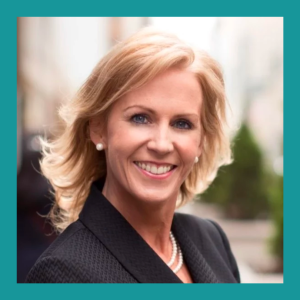
Monday Mar 25, 2024
Tuned In or Tuned Out? | Nuala Walsh
Monday Mar 25, 2024
Monday Mar 25, 2024
So many voices, who do we listen to? The loudest, most senior or most popular voice?
Our lives are rife with pivotal moments yet it’s harder to get decisions right. However, amidst this whirlwind, we at Behavioral Grooves recently made a resounding decision – to tune in and sit down with a guest who could help us untangle the intricacies of decision-making in the modern noisy world.
Enter Nuala Walsh, the insightful author of “Tune In – How to Make Smarter Decisions in a Noisy World”. Joining Kurt and Tim, she delves deep into the labyrinth of misjudgement, reveals the ten PERIMETERS™ traps dissecting the cognitive mechanisms that stop us hearing the voices that really matter. In this illuminating dialogue, the trio navigates the idea of psychological ‘deaf spots’ – why we tune out and offers pragmatic strategies for becoming a more powerful and influential Decision Ninja.
Discover the significance of concepts like ‘tuning in’ versus ‘tuning out’, and how our biases can be exacerbated by unchecked information filtering and neglected interpretation. Arm yourself with the revolutionary SONIC framework and explore the notion of ‘decision friction’.
Throughout the conversation, Walsh provides fascinating examples and actionable insights to recalibrate our thought processes towards more deliberate and well-considered judgement calls. Judgment isn’t taught but it is assumed especially in positions of power.
As always, our episode culminates in a Grooving Session with Kurt and Tim, where they bare personal anecdotes of cognitive biases and memory lapses – showcasing the myriad ways our judgment can be swayed.
Whether you’re grappling with a monumental decision or not, this episode is a must-listen for all. Don’t fall victim to the narrow thinking of the PERIMETERS effect – tune in and make more socially responsible decisions, not just to protect your career but to save time, money and lives.
© 2024 Behavioral Grooves
Topics
[5:50] Introduction and Speed Round
[10:42] Tuning in/out in a noisy world
[15:13] Decision-making and the impact of individual choices
[19:48] Ethics and whistleblowers
[22:57] Cognitive biases and judgment traps
[30:14] Decision-making strategies and mindset
[37:01] Desert island music choices
[40:39] Grooving session: Attention, focus, and savoring everyday moments
© 2024 Behavioral Grooves
Links
Global Association of Applied Behavioral Sciences
Course: The Science of Well-Being
Musical Links
Celine Dion “It’s All Coming Back to Me Now”
Bruce Springsteen “Dancing in the Dark”
Depeche Mode “Enjoy the Silence”
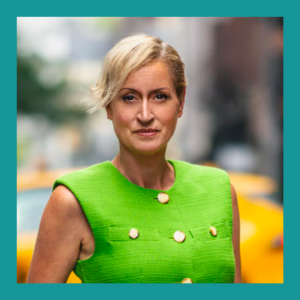
Sunday Mar 17, 2024
The Burnout Breakthrough | Kandi Wiens
Sunday Mar 17, 2024
Sunday Mar 17, 2024
March always feels like one of those months where you hit a slump. Work is back in full force, there are no holidays in sight, and life can start to feel a bit overwhelming like you can’t catch a break. In other words, if you’re reading this, you might be feeling burnt out.
But what exactly is burnout? Is it real? Or is it just a dramatic way of saying “I’m tired”? Join Kurt and Tim as they chat with Dr. Kandi Wiens, author of Burnout Immunity, about the very real psychological syndrome of burnout and how it can affect our day-to-day lives. In this episode, Dr. Wiens explores the symptoms of burnout and teaches us how we can build immunity to burnout through emotional intelligence and self-awareness.
In this insightful interview, Dr. Wiens emphasizes the signs of escalating stress levels and offers practical and easily implementable strategies for stress management in your daily life. Fighting burnout isn't just about a quick fix; it's about reevaluating work priorities and self-perception—and yes, the role of music in emotional regulation, much to Tim's joy!
The episode winds down with a grooving session between Kurt and Tim, where they discuss how they’ve experienced burnout in their own lives and offer listeners actionable steps to safeguarding against burnout and fostering emotional resilience in the workplace and beyond. If you are feeling at risk for burnout or have experienced it in the past, you won’t want to miss this episode!
© 2024 Behavioral Grooves
Topics
[3:58] Introduction and Speed Round
[6:02] Burnout and common symptoms associated with it
[15:25] Workplace burnout and generational differences
[20:05] Strategies for avoiding burnout
[29:57] Managing stress and uncertainty at work
[34:26] Emotional intelligence, self-care, and negative self-talk
[39:47] Music’s role in emotional regulation
[44:56] Grooving session: Burnout, stress, and language
© 2024 Behavioral Grooves
Links
Musical Links
Garth Brooks “The Dance”
Dave Matthews Band “Ants Marching”

Sunday Mar 10, 2024
Turning Anxiety into Assurance | Dr. Julia DiGangi
Sunday Mar 10, 2024
Sunday Mar 10, 2024
We’re back to our regularly scheduled program this week and full of energy - or should we say Energy Rising?
Join Kurt and Tim as they embark on a captivating exploration of emotional intelligence in this episode featuring Dr. Julia DiGangi, author of "Energy Rising." Delve into the intricate relationship between neuroscience and emotions as Dr. DiGangi uncovers the transformative potential of understanding our emotional landscape.
Discover how our emotions serve as the catalyst for our actions and choices, and why confronting emotional discomfort is crucial for personal evolution. Dr. DiGangi advocates for embracing uncertainty and anxiety, highlighting how these experiences can foster deeper connections, self-awareness, and confidence.
Through insightful analysis, Kurt and Tim delve into Dr. DiGangi’s perspectives on trauma recovery, the incremental growth of emotional intelligence, and the significance of starting small to build resilience gradually. As they say, you don’t start skiing on a black diamond – it’s all about mastering the bunny slope first (unless, of course, you’re Kurt, but that’s a story for another podcast).
If you’re seeking inspiration to push beyond your comfort zone and challenge your own stagnation, tune in to glean wisdom from Dr. DiGangi on how to fortify your resilience and elevate your energy. Discover the transformative power of emotional intelligence and witness your energy soar.
© 2024 Behavioral Grooves
Topics
[5:52] Intro and Speed Round
[8:55] Emotional pain and how it impacts our lives
[13:54] Emotional intelligence and decision-making
[24:17] Embracing pain for personal growth
[32:36] How emotions impact our nervous system
[38:11] Trauma, healing, and the intersection of science and faith
[48:40] Desert Island music
[50:23] Grooving Session: Emotions, risk, and uncertainty
© 2024 Behavioral Grooves
Links
John Bowby’s Attachment Theory
Energy Rising: The Neuroscience of Leading with Emotional Power
Musical Links
The Eagles “Hotel California”
John Mayer “Gravity”
Don Henley “The Boys of Summer”
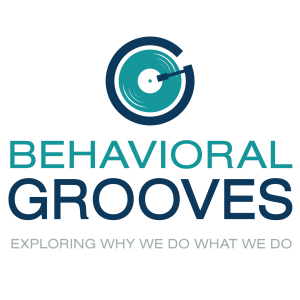
Wednesday Mar 06, 2024
Grooving on: Starting a Movement
Wednesday Mar 06, 2024
Wednesday Mar 06, 2024
In their final wrap-up, Kurt and Tim reflect on their recent series "They Thought We Were Ridiculous" and the insightful conversations they shared with leading figures in behavioral economics.
Throughout this engaging discussion, they delve into how small, dedicated groups have catalyzed significant shifts in both thought and practice within the field. They emphasize that behavioral economics didn't emerge fully developed; rather, it required the combined efforts of brilliant minds, collaboration, and unwavering perseverance in the face of adversity to shape the impactful field we know today.
During the episode, Kurt and Tim stress the importance of effecting change from within existing systems and encourage listeners to identify and capitalize on fortunate opportunities. Success isn't by chance - it often hinges on embracing uncertainty and seizing unforeseen circumstances.
Tune in for invaluable insights into the evolution of behavioral economics and discover actionable strategies for driving meaningful change in your own pursuits. Don't miss this exciting conclusion to our series—a compelling exploration of human behavior and the transformative potential of collaboration and perseverance.
Whole Series Available Now!
Episode 2: Importing Psychology
Episode 3: Children of Unlikely Parents

Monday Mar 04, 2024
Grooving on: Side Projects
Monday Mar 04, 2024
Monday Mar 04, 2024
Join Kurt and Tim as they exhale a collective sigh of relief and take a moment to reflect on the completion of their monumental project, "They Thought We Were Ridiculous" (available now! Wherever you listen to podcasts).
In this captivating conversation, Kurt and Tim delve into the wealth of insights they've gleaned from their immersive and unexpectedly prolonged journey into the annals of behavioral economics history. From navigating the intricacies of managing a side project within a side project to riding the tumultuous waves of multi-party collaboration, they candidly explore the peaks and valleys of their remarkable experience.
But true to the essence of "Behavioral Grooves," Kurt and Tim infuse a touch of scientific rigor into their reflections. They dissect the hurdles they encountered, drawing upon their knowledge of behavioral science and human tendencies to dissect how these factors both aided and hindered them along the way. After all, they know all too well that the planning fallacy isn't just a catchy term—it's a very real phenomenon!
As you unwind with Kurt and Tim, they invite you to peer behind the curtain at the making of "They Thought We Were Ridiculous," offering invaluable insights gleaned from their journey. Whether you're embarking on your own side project, contemplating the launch of one, or find yourself mired in the midst of one, let Kurt and Tim be your trusted guides, imparting thoughtful wisdom and sharing their firsthand experiences every step of the way.
Whole Series Available Now!
Episode 2: Importing Psychology
Episode 3: Children of Unlikely Parents
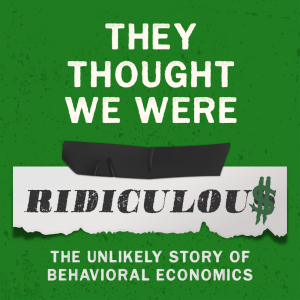
Monday Feb 26, 2024
...Ridiculous Ep. 5: The Future
Monday Feb 26, 2024
Monday Feb 26, 2024
Exploring the future of Behavioral Economics, we talked to three young researchers who are pushing the field further. A new generation of researchers is striving to understand decision-making in the developing world, how brains process economic decisions, and how bigger, more transparent scientific methods can shed light on basic principles of choice.
However, the journey toward new discoveries is not without its challenges. Behavioral Economics faces an identity crisis amid shifting perspectives, prompting a reevaluation of its approaches. Discover how this introspection may catalyze a more pragmatic ethos within the field, prioritizing real-world impact over theoretical abstraction. Join us as we navigate this nuanced landscape, engaging with the innovative minds shaping the future of behavioral economics with a blend of boldness, innovation, and pragmatism.
Discover
- How behavioral economics is revolutionizing farming in developing nations
- Discover groundbreaking revelations about the decision-making process
- Why there needs to be shift towards transparency in scientific practices to ensure a brighter future
- The new collaboration between Behavioral Economists and tech innovators and what it means for the future
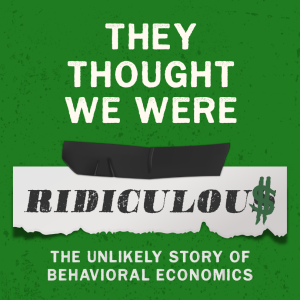
Monday Feb 26, 2024
...Ridiculous Ep. 4: Behavioral Economics Goes Mainstream
Monday Feb 26, 2024
Monday Feb 26, 2024
Eventually, Behavioral Economics emerged as an influential perspective. It’s become mainstream in Economics, and it’s helped inform programs and policies that affect real people every day. But where do we see this impact? Explore the pervasive influence of Behavioral Economics in our everyday lives and beyond, from shaping individual decision-making to informing government policy design. Witness the ongoing evolution of this once radical field as it continues to inspire innovation and shape policies for better societal outcomes.
Discover
- Explore how behavioral economics conquered economics’ stronghold
- Discover how psychology integration sparks innovative retirement savings solutions
- Uncover the UK and US government’s bold ventures into science-driven policy making
- Witness the global expanison of behvioral insights teams and their impact on addressing complex societal challenges
